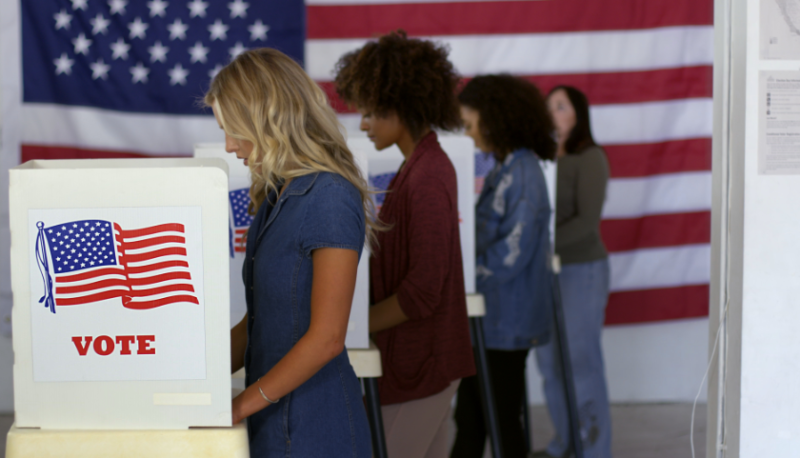The Biden-Harris administration is just days away, and while there is good reason to be hopeful for the future of our democracy, there is much work to be done.
As PFAW President Ben Jealous said recently:
[T]he president and executive branch have significant power to effect change in their first days on the job. We are stating unequivocally right now that this opportunity must be used to immediately address damage to civil and human rights done by the last administration, and take important steps to rebuild and improve our democracy.
The same challenge also applies to state and local lawmakers, especially when it comes to voting rights. Most election administration decisions are made at the state and local level. Combatting voter suppression and advancing progressive reforms is a fight for them and for us in our own communities.
Voting by mail was met with a barrage of attacks this year as its use reached unprecedented levels. Take for example, Pennsylvania. The 2020 elections provided the first major test of the state’s new 2019 law allowing no-excuse mail and absentee voting in the state. When the pandemic hit, an extension was granted that allowed mailed ballots received up to three days after Election Day to be counted as long as they were postmarked on or before Election Day. A bitter legal fight ensued—a fight likely to continue when the state legislature returns for its 2021 session. As far-right lawmakers attempt to chip away at this and other reforms, we can help ensure that both state and local officials have the tools and authorities they need to carry the mail-in voting load, and help even more Pennsylvanians understand that mail-in voting is an option that they can safely and confidently choose going forward.
Voter purges, the process through which states remove inactive or ineligible voters from the voter rolls, continue to be fraught with errors that leave voters vulnerable to political gamesmanship and mass disenfranchisement. Purges in Georgia garnered national attention during Stacey Abrams’s run for governor in 2018 and in part motivated her to found Fair Fight. Voting rights advocates are now suing Georgia ahead of January’s U.S. Senate runoff to restore another round of purged voters and are also monitoring ongoing purge litigation in Wisconsin. Until this issue is fully and finally resolved, educating folks about the need to check their registration status regularly and well in advance of any election will help mitigate disenfranchisement.
As we fight back in 2021, we also have a lot to fight for. Look no further than Virginia. Thanks to the influx of progressive state legislators that Virginians elected in 2019, many new voting rights provisions were in effect for the first time this year, and others go into effect next year or require secondary passage by the 2021 legislature, including prepaid absentee ballot postage and extended polling place hours. D.C., Maine, and Vermont are far ahead of the game when it comes to voting rights for returning citizens. They never revoke the voting rights of people with felony convictions, who can vote while incarcerated, and every state should be pushed to take positive steps in that direction.
On the occasion of his passing in July, congressman and voting rights champion John Lewis left the nation with a posthumous call to action:
Together, you can redeem the soul of our nation.
We must honor his legacy and answer that call.
